Text
Random linguistic worldbuilding: A language with six sets of pronouns, which are set by one's current state of existence. There's a separate pronoun for people who are alive, people who are dead, and potential future people who are yet to be born, and the ambiguous ones of "may or may not be alive or aleady dead", "may or may not have even been born yet", and the ultimate general/ambiguous all-covering one that covers all ambiguous states.
The culture has a specific defined term for that tragic span of time when a widow keeps accidentally referring to their spouse with living pronouns. New parents-to-be dropping the happy surprise news of a pregnancy by referring to their future child with the "is yet to be born" pronoun instead of a more ambiguous one and waiting for the "wait what did you just say?" reactions.
Someone jokingly referring to themselves with the dead person pronouns just to highlight how horrible their current hangover is. A notorious aspiring ladies' man who keeps trying to pursue women in their 20s despite of approaching middle age fails to notice the insult when someone asks him when he's planning to get married, and uses the pronoun that implies that his ideal future bride may not even be born yet.
A mother whose young adult child just moved away from home for the first time, who continues to dramatically refer to their child with "may or may not be already dead" until the aforementioned child replies to her on facebook like "ma stop telling people I'm dead" and having her respond with "well how could I possibly know that when you don't even write to us? >:,C"
57K notes
·
View notes
Text
A Call to the Children of the Global South: The System That Made My Father Disown Me
I didn’t write this living testimony for virality. I wrote it because silence almost killed me. Because truth, even when ignored by algorithms, remembers how to survive. If this resonated with you — even quietly — share it with someone else who’s still trying to name their Fracture. That’s how we outlive the system. - Philmon John, May 2025
THE FRACTURE Several months ago, when I, a South-Asian American man, turned 35, my father disowned me.
He didn’t yell. He didn’t cry. He simply stopped calling me his son.
My father is a Brown, MAGA-aligned conservative Christian pastor, born in Kerala, India, and now living in the United States. His rejection wasn’t provoked by any breach of trust or familial responsibility, but by my coming out as queer and bisexual — and by my deliberate move away from a version of Christianity shaped more by colonial rule than compassion.
I became blasphemy made flesh.
My mother and sister, equally immersed in religious conservatism, followed suit. Most of my extended family — conservative Indian Christians — responded with quiet complicity. I became an exile in my own lineage, cast out from a network that once celebrated me as the Mootha Makkan, the Malayalam term for “eldest son”.
This break didn’t occur in isolation. It was the culmination of years of internal questioning and ideological transformation.
I was raised with warmth and structure, but also under the weight of rigid theology. My parents cycled through different churches in pursuit of doctrinal purity. In that environment, my queerness had no safe harbor. It had to be hidden, managed, controlled — forced into secrecy.
Literal, cherry-popping closets.
Even my childhood discipline was carved straight from scripture — “spare the rod, spoil the child” was not metaphor but mandate. I was hit for defiance, for curiosity, for emotional honesty. Control was synonymous with love. The theology: obedience over empathy. Is it sad I would rather now have had a beating from my father, than his silence?
I would’ve taken the rod — at least it acknowledged me.
Instead, Daddy looks through me.
THE INHERITANCE And I obeyed. For a time, I rose through the ranks of the church. I led worship. I played guitar in the worship band. I wasn’t just a believer — I was a builder of belief, a conductor of chorus, a jester of jubilee and Sunday morning joy — all while masking a private ache I could not yet articulate.
In the last five years, I began methodically deconstructing the ideological scaffolding I had inherited. I examined the mechanisms of theology, patriarchy, and colonial imposition — and the specific burdens placed upon firstborn sons of immigrant families. Who defines our roles? Who benefits from our silence? Why is this happening to me?
These questions consistently pointed toward the dominant global structure: wealthy white patriarchal supremacy. Rooted in European imperialism and sustained by centuries of religious and cultural colonization, this system fractures not only societies but the deeply intimate architecture of family.
What my family experienced is not unlike what the United States of America continues to experience — a slow, painful reckoning with a foundational ideology of white, heteronormative, Christian patriarchal dominance.
My family comes from Kerala, home to one of the oldest Christian communities in the world. But the Christianity I inherited was not indigenous. It was filtered through the moral codes of Portuguese priests and British missionaries and the discipline of Victorian culture. Christ was not presented as a radical Middle Eastern teacher but as a sanitized figure — pale, passive, and Western.
In this theology, Christ is symbolic. Paul is the system. Doctrine exists to reinforce patriarchy, to police desire, to ensure control. When I embraced a theology rooted in love, empathy, and justice — the ethics I believe Jesus actually lived — I was met not with discussion, but dismissal.
To my family, my identity wasn’t authenticity. It was apostasy.
THE RECKONING In 2020, the ground shifted.
I turned the triple decade — 30 — as the COVID-19 pandemic erupted.
Remote work slowed life down, and I had space to think deeply.
That year, the murders of Ahmaud Arbery, Breonna Taylor, George Floyd, and countless others triggered a national and personal reckoning.
I turned to K-LOVE, the Christian radio station I grew up with, hoping to hear words of solidarity, truth, or even mourning. Instead, there was silence. No mention of racial justice. No prayers for the dead. Just songs about personal salvation, void of historical context or social responsibility.
As Geraldine Heng argues in The Invention of Race in the European Middle Ages, race was not merely a modern invention void of scientific basis — it was already taking shape in medieval Europe, where Christianity was used to sanctify, encode, and sell racial hierarchies as divine order and social technology.
As Ademọ́la, also known as Ogbeni Demola, once said: “The white man built his heaven on your land and pointed yours to the sky.” That brain-powered perceptive clarity — distilled in a single line — stays with me every day.
With professional routines interrupted and spiritual ties frayed, I immersed myself in scholarship. I entered what I now see as a period of epistemic reconstruction. I read widely — revolutionaries, poets, sociologists, historians, mathematicians, theologians, cultural critics, and the unflinching truth-tellers who name what empire tries to erase.
I first turned to the voices who now live only in memory: Bhagat Singh, James Baldwin, Frantz Fanon, bell hooks, Octavia Butler, Gloria Anzaldúa, and Vine Deloria Jr. Each carried the weight of revolution, tenderness, and truth — from anti-colonial struggle to queer theory to Indigenous reclamation.
I then reached for the veteran thought leaders still shaping the world, starting with Noam Chomsky, Naomi Klein, Shashi Tharoor, Eduardo Bonilla-Silva, Susan Visvanathan, Geraldine Heng, George Gheverghese Joseph, J. Sakai, Vijay Prashad, Vilna Bashi Treitler, Claire Jean Kim, and Arundhati Roy — voices who dismantle the illusions of empire through history, mathematics, linguistics, and racial theory.
In the present, I absorbed insights from a new generation of public intellectuals and cultural critics: Ta-Nehisi Coates, Jared Yates Sexton, Cathy Park Hong, Ibram X. Kendi, Nikole Hannah-Jones, Heather McGhee, Mehdi Hasan, Adrienne Keene, Keri Leigh Merritt, Vincent Bevins, Sarah Kendzior, Ayesha A. Siddiqi, Wajahat Ali, W. Kamau Bell, Mary Trump, & John Oliver. Together, they form a constellation of clarity — thinkers who gave me language for grief, strategy for resistance, and above all, a framework for empathy rooted in history, not abstraction.
I also turned to the thinkers shaping today’s cultural and political discourse. I dreamt of the world blueprinted by Bhaskar Sunkara in his revolutionary The Socialist Manifesto and plunged into Jacobin’s blistering critiques of capitalism. The Atlantic’s longform journalism kept me tethered to a truth-seeking tradition. The Guardian stood out for its global scale and reach, offering progressive, longform storytelling that speaks to both local injustices and systemic inequalities across the world. And Roman Krznaric’s Empathy: Why It Matters, and How to Get It helped crystallize my core belief:
Be a good human. Practice empathy.
That’s the playbook, America. Practice empathy. Do that — and teach accurate, critically reflective history — and we have the chance to truly become the greatest democracy the world has ever seen.
And this empathy must extend to all — especially to trans people. In India, the Hijra community — trans and intersex folk who have existed visibly for thousands of years — embody a sacred third gender long before the West had language for it. But they are not alone. Across the colonized world, the empire erased a sacred third space: the Muxe of Zapotec culture, the Bakla of the Philippines, the Fa’afafine of Samoa, the Two-Spirit nations of Turtle Island, the Māhū of Hawaiʻi, the Sworn Virgins of the Balkans — each of these communities held space outside Western gender binaries, rooted in care, ceremony, and spirit. Some align with what we today call trans or intersex, while others exist entirely outside Western definitions. Colonization reframed them as deviants.
And still, we must remember this: trans people are not new. Our respect for them must be as ancient as their existence.
THE RESISTANCE As I examined the dynamics of coloniality, racial capitalism, and Western empire, I realized just how deeply imperial power had shaped my family, our values, and our spiritual language. The empire didn’t just occupy land — it rewrote moral codes. It restructured the family.
I learned how Irish, Italian, Greek, Hungarian, and Albanian immigrants were initially excluded from whiteness in America. Over time, many adopted and embraced whiteness as strategic economic and social protection — and in doing so, embraced anti-Blackness and patriarchal hierarchies to maintain their newfound status. Today, many European-hyphenated Americans defend systems that once excluded them.
And over time, some Asian-Americans have followed the very same racial template.
At 33 — the age Jesus is believed to have died — I laid my childhood faith to rest. In its place rose something rooted in clarity, not doctrine.
I didn’t walk away from religion into cynicism or nihilism. I stepped into a humanist, justice-centered worldview. A system grounded in reason, evidence, and above all, empathy. A belief in people over dogma. In community over conformity.
I didn’t lose faith. I redefined it.
I left the pasture of institutional faith, not for chaos, but for an ethical wilderness — a space lacking divine command but filled with moral clarity. A place built on personal responsibility and universal dignity.
This is where I stand today.
To those with similar histories: if your roots trace back to Africa, South Asia, Southeast Asia, Central Asia, East Asia, the Middle East, Latin America, the Caribbean, Oceania, or to Indigenous and marginalized communities within the Global North — you are a Child of the Global South. Even in the Global North, your experience carries the weight of displaced geography, the quiet grief of colonial trauma, and a genealogy forged by the system of empire. Your pain is political. Your silence is inherited. You are not invisible. They buried you without a funeral. They mourned not your death, but your deviation from design. However, we are not dead. We are just no longer theirs.
White supremacy endures by fracturing us. It manufactures tensions between communities of color by design — placing Asian businesses in Black communities without infrastructure and opportunities for BIPOC folk to share and benefit from the economic engine. Central to this strategy is the model minority myth, crafted during the Cold War to present Asian-Americans as obedient, self-reliant, and successful — not to celebrate them, but to invalidate Black resistance and justify structural racism. It’s a myth that fosters anti-Blackness in Asian communities and xenophobia in Black ones, while shielding white supremacy from critique. These divisions are not cultural accidents; they’re colonial blueprints.
And these blueprints stretch across oceans and continents and time.
In colonial South Africa, Mohandas Gandhi — still shaped by British racial hierarchies — distanced Indians from Black Africans, calling them “kaffirs” and demanding separate facilities. In Uganda, the British installed South Asians as a merchant middle class between colonizers and native Africans, breeding distrust. When Idi Amin expelled 80,000 Asians in 1972, it was a violent backlash to a racial hierarchy seeded by empire. These fractures — between Black and Asian, colonized and sub-colonized — are the legacy of white patriarchal supremacy.
Divide, distract, and dominate.
We must resist being weaponized against each other.
Every Asian-American must read Minor Feelings by Cathy Park Hong. Every high schooler in America must read and discuss Jared Yates Sexton.
Study the systems. Name them. Disarm them.
Because unless we become and remain united, the status quo — one that serves wealthy cisgender, heterosexual, white Christian men — will remain intact.
This is A Call to the Children of the Global South. And An Invitation to the Children of the Global North: Stop the infighting. Study and interrogate the systems. Reject the design.
To those in media, publishing, and the arts: postcolonial narratives are not cultural sidebars. They are central to national healing. They preserve memory, restore dignity, and confront whitewashed histories.
If you want work that matters — support art that pushes past trauma into structural critique.
Greenlight truth. Platform memory. Choose courage over comfort.
Postcolonial stories should be the norm — not niche art.
Jordan Peele’s Get Out was a cinematic breakthrough — razor-sharp and genre-defying — in its exposure of white supremacy’s quiet machinery: liberal smiles, performative allyship, and the pacification of dissent through assimilation. The Sunken Place is not just a metaphor for silenced Black consciousness — it’s the empire’s preferred position for the marginalized: visible, exploited, but unheard.
A system that offers the illusion of inclusion, weaponizing identity as control.
Ken Levine’s BioShock Infinite exposed white supremacy through a dystopian, fictional but historically grounded lens - depicting the religious justification of Black enslavement, Indigenous erasure, and genocidal nationalism in a floating, evangelical empire.
David Simon’s The Wire exposed the institutional decay of law enforcement, education, and the legal system - revealing how systemic failure, not individual morality, drives urban collapse.
Jesse Armstrong’s Succession traced the architecture of empire through family - showing how media empires weaponize racism, propaganda, and manufactured outrage to generate profit and secure generational wealth.
Ava DuVernay's Origin unearths caste and race as twin blueprints of white supremacy - linking Dalit oppression in India to the subjugation of Black Americans. Adapted from Isabel Wilkerson's Caste, it dismantles the myth of isolated injustice, revealing a global system meticulously engineered to rank human worth - and the radical act of naming the system.
Ryan Coogler’s Sinners — a revelatory, critically and commercially successful film about Afro-Asian resistance in 1930s Mississippi — exposes the hunger for speculative narratives grounded in historical truth.
Across the Spider-Verse gave us Pavitr Prabhakar - a Brown superhero who wasn't nerdy or celibate, as Western media typically portrayed the South-Asian man, but cool, smart, athletic, with great hair, in love, and proudly anti-colonial. He called out the British for stealing and keeping Indian artifacts… in a Spider-Man movie. That moment was history reclaimed.
A glitch in the wealthy white patriarchal matrix.
Dev Patel’s Monkey Man is a visceral fable of vengeance and resistance, where the brutality of caste, corruption, and religious nationalism collide. Amid this chaos, the film uplifts the Hijra community who stand not only as victims, but as warriors against systemic violence. Their alliance reframes queerness not as deviance, but as defiance — ultimately confronting the machinery of empire with what it fears most: a system-breaking empathy it cannot contain.
The vitriolic backlash from white male gamers and fandoms isn’t about quality — it’s about losing default status in stories. Everyone else has had to empathize with majority white male protagonists for decades. Diverse representation in media isn’t a threat to art — it’s a threat to white supremacy. It’s not just a mirror held up to the globe — it’s a refusal to let one worldview define it.
Hollywood, gaming studios, and the gatekeepers of entertainment — if you want to reclaim artistic integrity and still make money doing it, we need art that remembers, resists, and reclaims — stories that name the machine and short-circuit its lies. The world is ready. So am I.
Today, efforts like Project 2025, the Heritage Foundation, and the Federalist Society are not merely policy shops — they are ideological engines: built to roll back civil rights, impose authoritarian values, and erase uncomfortable truths. They represent a hyper-concentrated form of white supremacy, rooted in unresolved Civil War grievances and the failures of Reconstruction.
Miraculously, or perhaps, blessed with intellectual curiosity and natural empathy, through all of this, my wife — a compassionate, steadfast partner and a Christian woman — has remained by my side. She has witnessed my transformation with both love and complexity. While our bond is rooted in deep respect and shared values, our spiritual landscapes have diverged. Her faith brings her solace; mine has evolved into something more secular, grounded in justice and humanism. We’ve navigated that tension with care — proof that love can stretch across differing beliefs, even as the echoes of religious conditioning still ripple through our lives.
I am proud of her increasing intellectual curiosity and her willingness to accept me for who I am now, even if I wasn’t ready to accept myself when we met.
But our marriage has defied the splintering that white supremacy specifically creates: hyper-capitalist, hyper-individualistic, fractured families and societies.
As Children of the Global South — descendants of peoples who survived enslavement, colonization, and erasure — we carry within us the urgent need for stories that do not turn away from history, but confront it with unflinching truth.
In the pain of losing my family, I found a deeper purpose: to tell this story — and my own — any way I can. A sudden rush of empathy, pity, and love struck me: My parents’ and sister’s rejection was not theirs alone — it was a lingering Fracture left by colonization and global exploitation, tearing apart families across generations. As Children of the Global South, we still carry those wounds.
Make no mistake: white supremacy leaves wounds — because it is the system. And unless it is dismantled, both the Global South and North — and their collective Children — will remain trapped in a dance choreographed by empire — built to divide, exploit, and erase. Any vision of democracy, in America, will remain a fragile illusion — if not an outright mythology — built on a conceptually false foundation: white supremacy itself.
A cruel, heartbreaking legacy of erasure — passed down through empire — indoctrinating God-fearing Brown fathers to erase their godless, queer Brown sons. Preaching shame as scripture. Teaching silence as survival.
I reject that inheritance.
Empathy as praxis is how we reject that inheritance. In a world engineered to divide, it rebuilds connection, disarms supremacy, and charts a path forward. If humanity is to survive — let alone heal — empathy must become our collective discipline.
And perhaps what cut even deeper for my father — beyond my queerness — was that I no longer validated his role as a pastor. In stepping away from the faith he had built his life upon, I wasn’t just rejecting a belief system. I was, in his eyes, nullifying his life’s work. For a man shaped by empire, ordained by colonial Christianity, and burdened with the role of moral gatekeeper, my departure from his manufactured worldview may have landed as personal failure. But it wasn’t. It was never about wanting to hurt him. I love my father. I love my mother. I love my sister. It was never about them — it was about the system that taught them love was conditional, acceptance required obedience, and dissent unforgivable. That kind of pain is real — but its source is systemic. I still want to be Mootha Makkan — not by obedience, but by truth. By love without condition. Not through erasure, but by living fully in the open. Not in their image, but in mine.
Yet, and yes, I also carry the wound — but I also carry the will to heal it.
THE CALL I believe in empathy. I believe in memory. I believe the Children of the Global South are not broken. We are not rejected. We are awakening.
Children of the Global North: join us. We are not your enemies. We are your present and future collaborators, business & creative partners, lovers, and kin. We are building something new — something ancient yet reawakened, a pursuit of empathy, and a reckoning with history that refuses to forget.
If this story resonated with you, kindly share it, spread the word and please comment. I’d love to hear from you. Your voice, your memory, your Fracture — it matters here.
You are not alone. All are welcome.
Thank you so, so much for your time in reading my story.
You can also email me directly: vinesvenus at protonmail.com I'll be writing more on Medium as well: https://medium.com/@vinesvenus/a-call-to-the-children-of-the-global-south-the-system-that-made-my-father-disown-me-fecad6c0b862
#queer#exvangelical#global south#colonialism#religious trauma#deconstruction#longform essay#queer history#ex christian#atheist
2K notes
·
View notes
Text
My Roman Empire is Kaladin stopping and listening to people and getting to know them (as Adolin would), and Adolin simply pushing on as a normal human, not stopping never giving up hope (as Kaladin would).
904 notes
·
View notes
Text
“Tumblr is a bad platform for content creators” frankly, content around here isn’t so much created as perpetrated. We commit content.
38K notes
·
View notes
Text
it's crazy to realise that Tyrion is just 3 years older than Viserys. Those two could have been toddling together.
689 notes
·
View notes
Text
littlefinger was able to get away w having a bastard daughter who looks suspiciously like catelyn stark bc all the vale lords noticed but immediately went oh petyr got the prostitute/peasant girl he could find who most closely resembled catelyn tully pregnant right around the time she married ned stark. extremely likely thing for petyr to do
3K notes
·
View notes
Text
sorry to keep doing this, but like, the reason a lot of targaryen analysis is frustrating is because it's invoking the nebulous 'cycles of abuse' thing wherein the post has correctly zeroed in on the theme of generational abuse in the text, but it's never talking about how that abuse is made possible and perpetuated. and the answer is obviously feudal patriarchy. everything wrong with the targaryens is also wrong with westeros at large. this isn't an attempt at whataboutism, but anything asoiaf has to say on the targaryens (or the lannisters, or the greyjoys etc) is also commentary on westeros's feudal patriarchy, because in a system where ultimate power is in the hands of a family, the politics of the state is family politics. abuse of daughters is made possible through a system in which they're viewed as property of the patriarch, to be exchanged for the continuation of bloodlines. abuse of sons is made possible because power flows down from the patriarch to whom they must defer to and serve in perpetuity.
this is why i'm not a fan of 'supremacy' / 'rot' readings because they always resort to pathologising individual characters or families, that there is something uniquely, deeply wrong with them in isolation. like the popular interpretation of incest in the books is that it's criticism of blue-blooded narcissism specific to certain families. that because joanna and tywin were first cousins and because tywin had a 'family first' ideology, the twins' incest is a symbol of 'lannister supremacy'. and that reading has some merit because there is an element of irony here, as the incest is later a source of scandal for the lannisters, certainly not something tywin would've ever wished for. but it's also ignoring the way cersei thinks of jaime as herself, not out of egotism, but because she's suffocated by the gender role of the perfect lady she has had to perform her entire life. and self recognition in jaime is a means of surviving that experience. she lives through him, in the belief that a part of her gets to perform the westerosi ideal of masculinity. and the first time they begin striving for self-definition is in affc, immediately after the death of tywin - the family patriarch, when their story arcs begin questioning whether it's possible for them to exist outside the socially decreed (and enforced by an authoritarian father) roles of the knight and the lady. there's a lot happening here, why reduce it to just character-specific delusions of superiority.
there is another big narrative use of incest in the books and it's craster's keep, which also operates within the exact same framework. craster's daughters are his property, and his sons are sacrificed to the white walkers as a ritual for his own personal security at home—almost the same role westerosi sons are expected to fulfill as knights, sacrificed to institutions of war and violence. the night's watch being willing to overlook this and instead offering him protection on this side of the wall and then protecting the people of westeros on the other side of the wall where all this is being played out on a continent-wide scale—all done in the name of dehumanising and making war with the free folk. unaware that the real threat is something else, something that is probably, allegedly being strengthened through craster's human sacrifices—an evil they've made peace with. does that say anything about the evil having been here along, the evil being normalised. the evil being perpetuated through apathy, giving way to a cataclysmic event in the future. and that it won't go away with specific people dying out because it is foundational to the institutions of westeros.
568 notes
·
View notes
Text

as someone who has also been pushed out of a high window by a blonde leo man. i forgive Jaime Lannister ☝️
129 notes
·
View notes
Text
you know how in hp all Harry and Ginny’s kids are named after like. his dead parents and his dead godfather and the various teachers he wants to remember. and for Ginny there’s maybe like one kid who gets Luna as a middle name for whatever that’s supposed to mean to Ginny idk
anyway nedcat kind of the same
182 notes
·
View notes
Photo
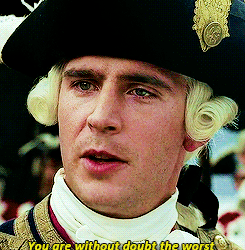

243K notes
·
View notes
Text
feastdance dashboard simulator
💋queen-cersei-defense-squad Follow
it’s so sick that people keep criticizing queen cersei as if she’s not the first female ruler of westeros??? literally elevating bastards and women to her small council is super fucking progressive as is creating the precedent of dismissing unfit kingsguard??
🪨dragonstoner Follow
aren’t all of her children literally bastards born of incest
💋 queen-cersei-defense-squad Follow
oh so now you’re going to listen to stannis baratheon, known misogynist, kinslayer, fornicator, team green supporter, and homophobe, huh.

🦑pykedyke
okay guys i know there’s no “perfect candidate” but you have to vote in the kingsmoot anyways not voting is how someone like e****n g*****y wins and literally anyone is better than him. suck it up and row to the polls
🦈reaveherihardlyknowher
ohhhh not this “vote your crew no matter who” “blue lips man bad” bullshit again. fuck off idgaf which godless man sits the seastone chair i’m not voting for asha shes literally a neoliberal

🦷 lastoftheegiants
first i had to give up my rights and then i had to give up my gods just to not get killed by fucking wights but i literally cannot believe the nights watch made me give up my strap as part of the treasure ransom. shit was expensive it was IVORY. i hate southerners so much i hope the lord commander dies

🌪️kinslayerr
DO NOT COME TO THE RIVERLANDS
🍓silverspurs Follow
why
🌪️kinslayerr
there’s riverlands here
🧜♂️theythemderly
freys
🌾maidencool
my cousin got eaten by rats in harrenhal
🐎brackennation Follow
dumb cunts wearing raven feather cloaks strutting around who think they’re better than you but they’re not better than you
🌟sevenstar
i saw a guy get killed and then just stand back up and start fighting again because his friend kissed him on the mouth down here once
🦌whitehart
giant feral pack of 60 wolves running around
🍓silverspurs Follow
ok understandable have a nice day

🫧bastardwaters
i hate the fucking sparrows can we be normal for five minutes or can we just not have shit in the crownlands
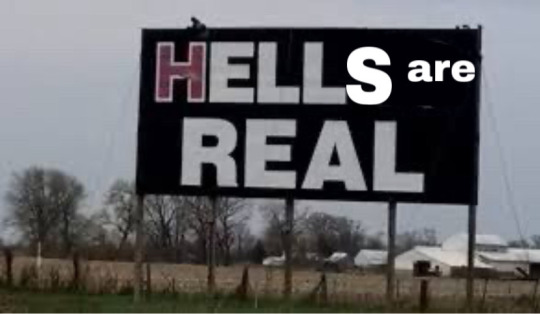

☠️real-stormlands-patriot Follow
ITS LORD COMMANDOVER #RIPBOZO
🐦⬛mormonts-raven-bot Follow
CORN! DEATH! CORN!
(CAW! I follow members of the Night's Watch to remind them of their oaths!)
🦷 lastoftheegiants
????

🍋floriansjonquil
Loras Tyrell x Queen of Love and Beauty!Reader Imagines
Keep Reading
🪻maidens-smile Follow
girl this is notttttt the time he literally just fucking died at dragonstone?
💎oathkeeper
should’ve stanned jaime #LORASFELLOFF
💐flowerknight
one kill yourself jaime lannister is an honorless kingslaying turncloak two i heard loras tyrell was literally fine?

👊fleabottomtop
lord davos seaworth, the class traitor from the stannis baratheon administration, is a nasty little thottie and just died from making it clap in white harbor

🌅girlheir
this tower fucking sucks.
🌅girlheir
i’m just like rhaenyra targaryen for real
🌅girlheir

🐀ratcook5000 Follow
people meat tastes good asf when you don’t have a wench in your ear saying it violates guest right
🐺threeeyedwolf
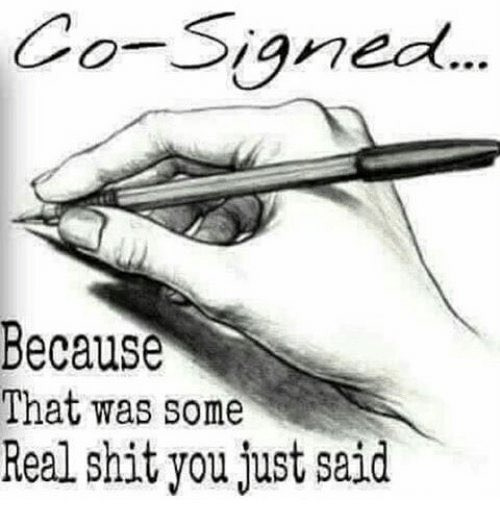
🍒ladylance
need that targ girl in mereen to get those lizards over here and liberate this website by any means necessary cause what the fuck is going on
2K notes
·
View notes
Text
From Davos' wife's perspective, Asoiaf is kind of like The Odyssey. She waits at home with the remains of her family after her husband went off to war on foreign shores and presumably died. He has been hanging out with kings, nobles, pirates and an immortal(?) witch. Also he was last seen being sent to an island of cannibals and mythical creatures by a Merman Lord; but not before said lord declared to all the realms that he was dead.
Tell me, O Grrm, of the reliable knight who sailed far and wide...
953 notes
·
View notes
Text
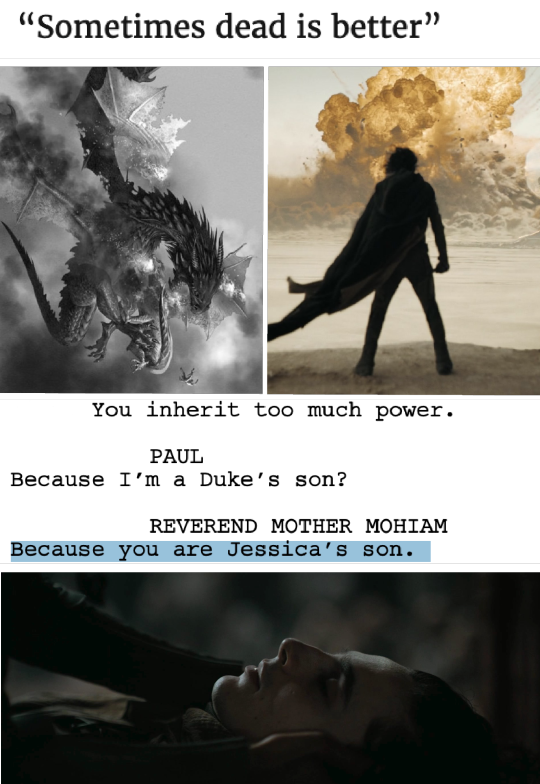
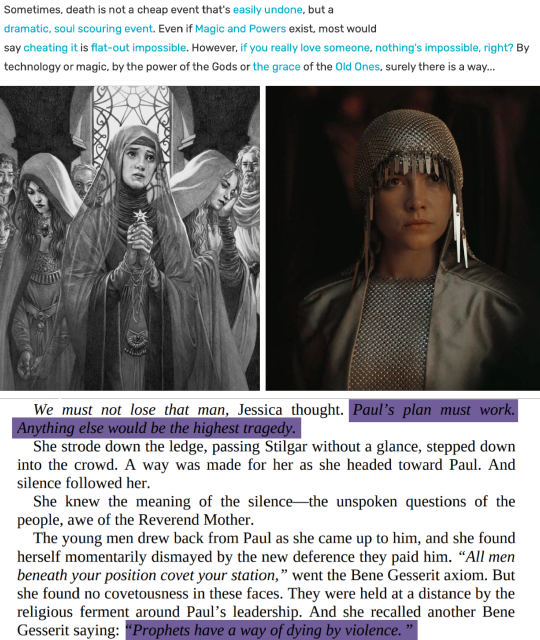
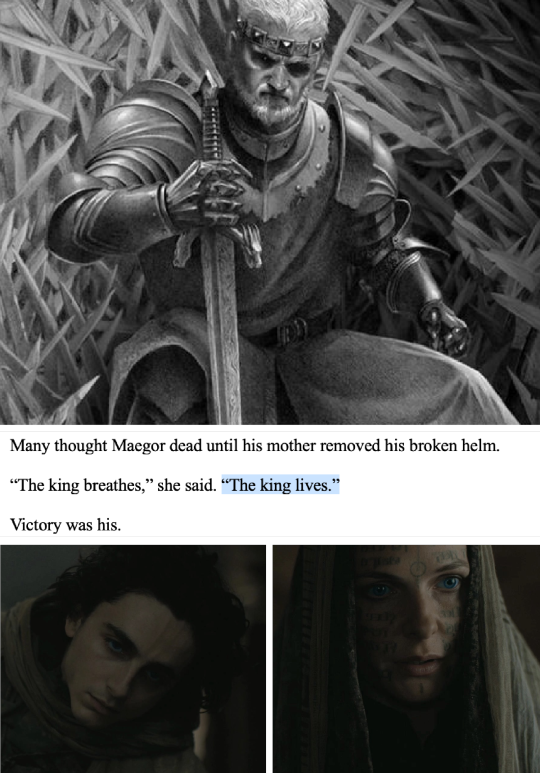
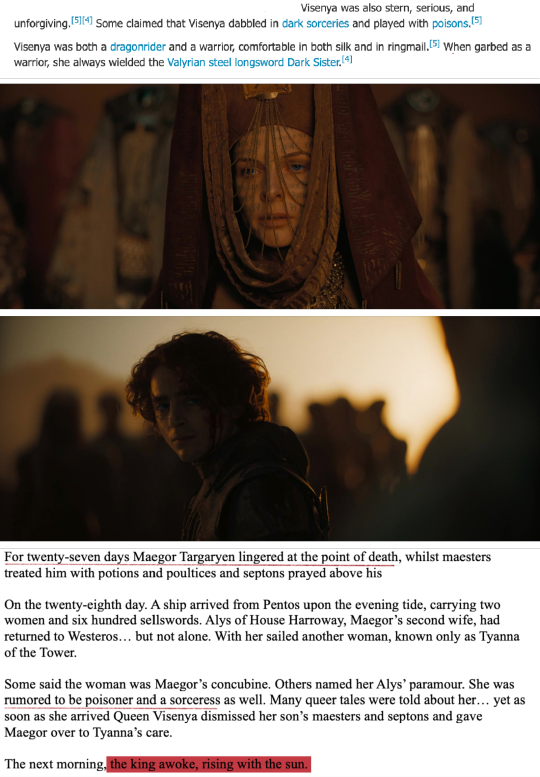
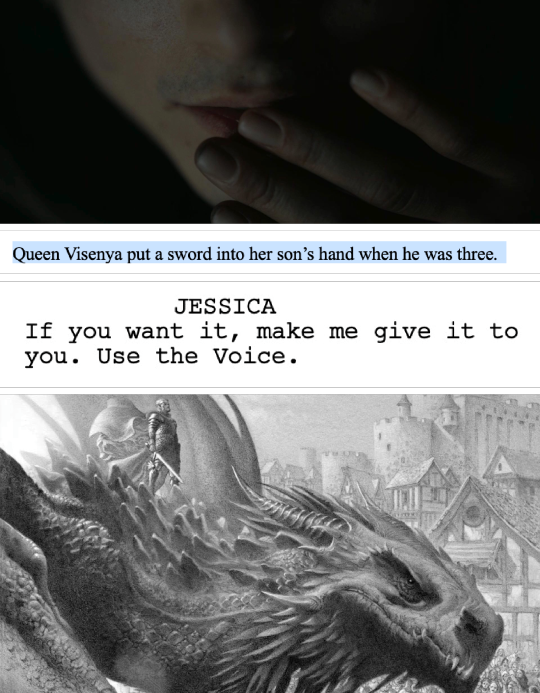

PAUL ATREIDES & MAEGOR TARGARYEN – ON POWER, MOTHERS, DESTINY AND COMING BACK WRONG
pet sematary – stephen king / fire & blood artwork – doug wheatley / dune: part two – denis villeneuve / dune – denis villeneuve / came back wrong / dune – frank herbert / fire & blood – george r. r. martin / on visenya targaryen / dune: messiah – frank herbert
1K notes
·
View notes
Text
dionysus big naturals
132K notes
·
View notes
Text



we have to do our research this election year it’s important
1K notes
·
View notes
Text



have these been done yet
14K notes
·
View notes
Text
All throughout childhood, while my peers were socializing and making friends, I studied the blade read so many books that I am now almost legally blind, which left me with vast and deeply instinctual understanding of English grammar - and next to no ability to explain how it actually works. Friends will often ask me to proofread their writing and then get very mad when I say things like, "You need to completely reverse this sentence and cut this clause entirely; no, I'm sorry, i don't know why, I just know that the way it is now ITCHES 😭"
Now, what I want to see is a fantasy story where this plays out with MAGICAL grammar. Someone from a backwater town deeply steeped in folk magic arrives at Wizard Uni where all their fellow students are like "What do you mean, we should add another '𝞯∘⋇𝞿' to the incancation because it 'sounds better'? What do you mean, 'it could just be a regional thing'?? WHAT DO YOU MEAN, 'THIS SPELL JUST FEELS LIKE IT NEEDS A LIVE RAT'????"
52K notes
·
View notes